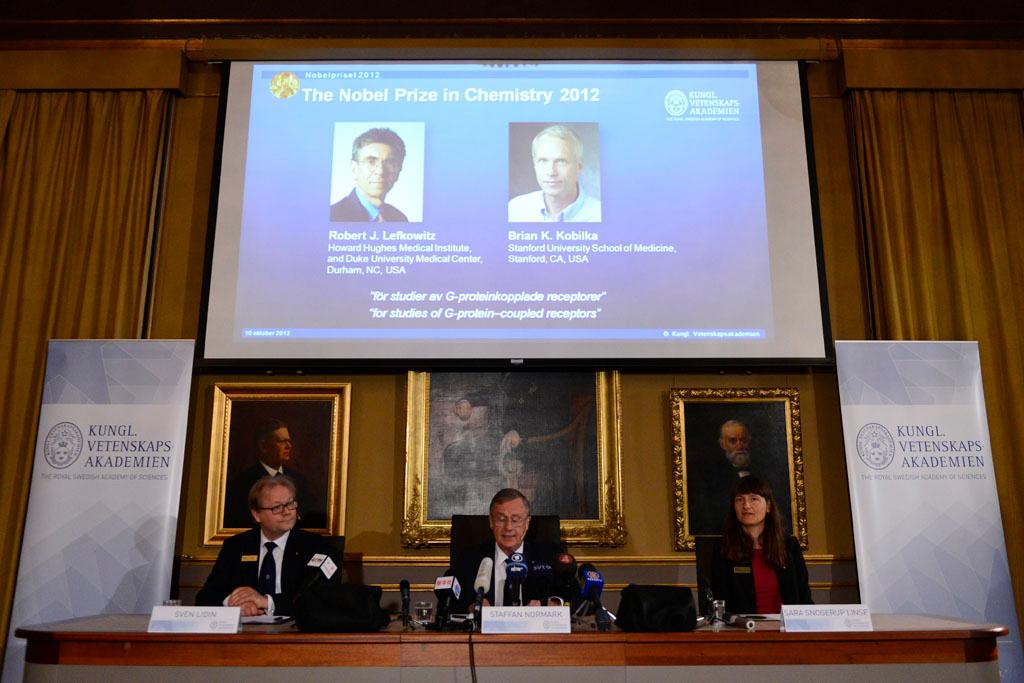Robert Lefkowitz, Brian Kobilka win Nobel Prize in Chemistry for work with cells
Pictures of US scientists Robert Lefkowitz, above left, and Brian Kobilka are shown as winners of the 2012 Nobel Prize in Chemistry by Staffan Normark, center, permanent secretary of the Royal Swedish Academy of Sciences on October 10, 2012 in Stockholm.
Understanding how cells work to produce better medications with fewer side effects has led to a Nobel Prize in Chemistry for a pair of American scientists.
Robert Lefkowitz and Brian Kobilka will share the $1.2-million prize for their research into G-protein-coupled receptors, the mechanisms that allow cells to respond to chemical messages, Reuters reported.
“Knowing what (the receptors) look like and how they function will provide us with the tools to make better drugs with fewer side effects,” Nobel committee chairman Sven Lidin said, Reuters reported.
The breakthrough will help doctors treat diseases such as diabetes, cancer and depression, for example.
“Around half of all medications act through these receptors, among them beta blockers, antihistamines and various kinds of psychiatric medications,” the Nobel Prize committee said, according to Reuters.
More from GlobalPost: John Gurdon, Shinya Yamanaka share Nobel Prize in medicine
Lefkowitz is a 69-year-old professor at Duke University and researcher at the Howard Hughes Medical Institute.
Kobilka, 57, worked with Lefkowitz at Duke before moving on to Stanford.
They did their research primarily in the 1980s, The Associated Press reported.
Their work allows a better understanding of how receptors in our bodies react and respond to stimuli such as an adrenaline rush, smells or taste.
The receptors act as gateways to the cells, and a better understanding how they work is vital for pharmaceutical companies.
Both men said they were sleeping when the call arrived.
“They passed the phone around and congratulated me,” Kobilka said, the AP reported.
“I guess they do that so you actually believe them. When one person calls you, it can be a joke, but when five people with convincing Swedish accents call you, then it isn't a joke.”
More from GlobalPost: David Wineland, Serge Haroche win 2012 Nobel prize in physics
The story you just read is accessible and free to all because thousands of listeners and readers contribute to our nonprofit newsroom. We go deep to bring you the human-centered international reporting that you know you can trust. To do this work and to do it well, we rely on the support of our listeners. If you appreciated our coverage this year, if there was a story that made you pause or a song that moved you, would you consider making a gift to sustain our work through 2024 and beyond?
